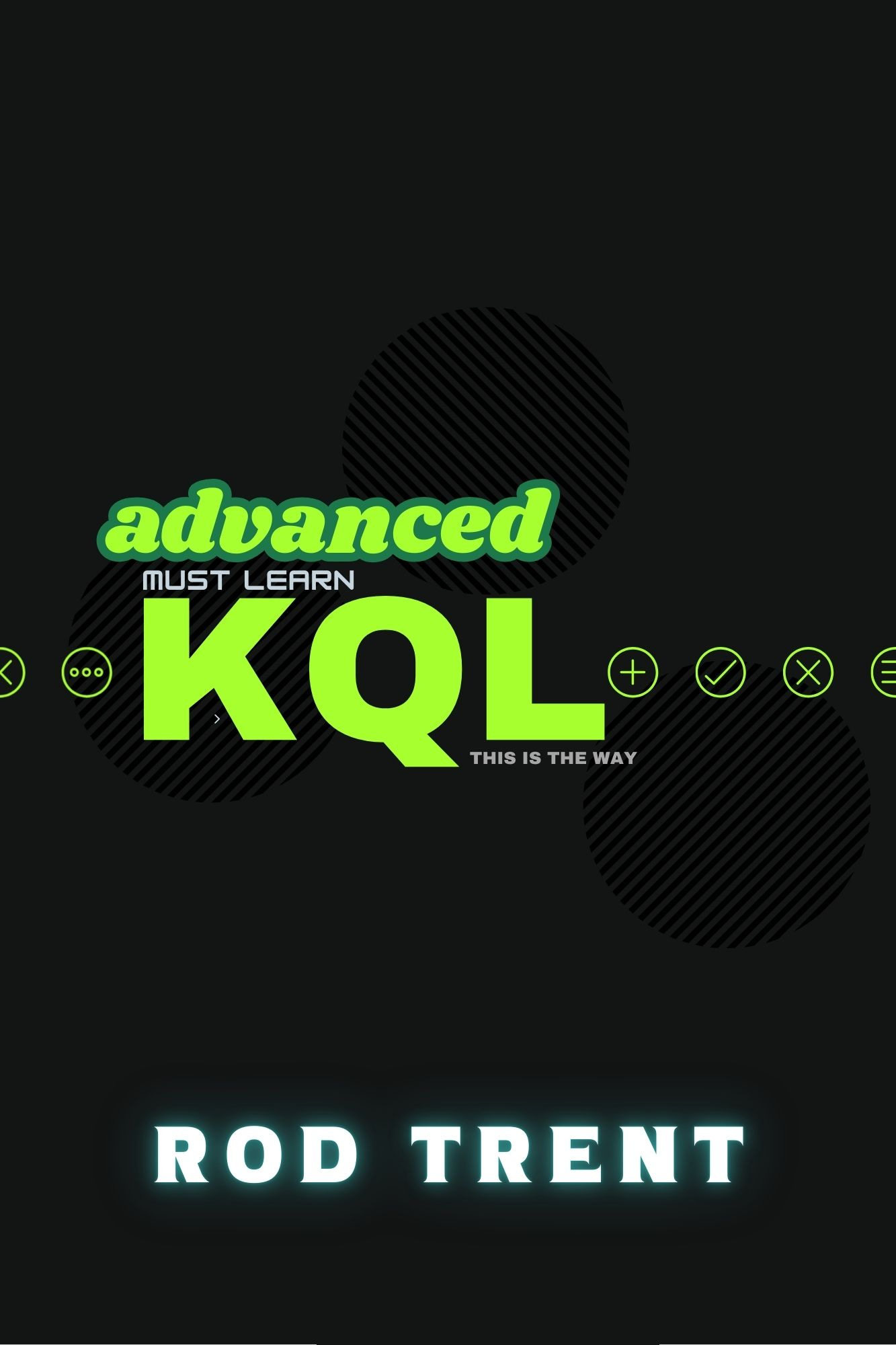Announcing the Release of “Must Learn KQL: Advanced Edition” – Level Up Your Data Querying Skills!
Your Epic Quest for Query Supremacy!
Hey everyone, it’s me again—your friendly neighborhood KQL evangelist, blogger, and author. If you’ve been following my journey with the Kusto Query Language (KQL), you know how obsessed I am with empowering folks to tame massive datasets in Azure Data Explorer, Microsoft Sentinel, and beyond. Back in 2022, I released Must Learn KQL, and wow—what a ride it’s been! With over 1,000 stars on GitHub, 50,000 eBook downloads, and thousands of certificates earned through the workshop, it’s clear that the community is hungry for practical, hands-on KQL knowledge.
Today, I’m thrilled to announce the release of the highly anticipated sequel: Must Learn KQL: Advanced Edition! This isn’t just a rehash—it’s a deep dive into the nuanced, powerful features of KQL that will turn you into a true data wizard. Whether you’re analyzing logs for security threats, optimizing performance in massive datasets, or building custom visualizations, this book is your guide to mastering the art and science of advanced querying.
Why an Advanced Edition?
The original Must Learn KQL laid the foundations, introducing KQL through fun analogies like Captain KQL’s superhero saga or Archmage Kusto’s battles against data dragons. It was all about getting you started with confidence. But as the community grew and feedback poured in, it became obvious: you wanted more. More complex queries, more real-world scenarios, more tools to handle the wildest datasets.
Advanced Edition picks up where the first left off, focusing on:
Powerful Operators: Deep dives into mv-expand for handling arrays, parse for string manipulation, join for correlating data, and restrict for implementing row-level security.
Geospatial and Time-Series Analysis: Learn to create maps, detect anomalies, and analyze trends with functions like geo_point_in_polygon and series_decompose_anomalies.
JSON and Regex Mastery: Parse nested JSON structures, flatten arrays, and use regular expressions for data cleaning and threat detection.
Aggregation and Optimization: Advanced techniques for summarizing data, avoiding pitfalls, and querying large datasets efficiently.
Integration and Beyond: Combine KQL with Power Automate, PowerShell, and even generative AI tools like Copilot, Grok, and ChatGPT for query generation.
Packed with hands-on examples, challenges, and best practices, this book adapts to the evolving KQL landscape—including updates for 2025 features like enhanced anomaly detection and API integrations. Plus, I’ve included curated datasets and alternatives to the now-retired aka.ms/LADemo environment, so you can practice seamlessly using kustofree or your own setups.
Inspired by You: The Community’s Impact
This book wouldn’t exist without the incredible KQL community. From the 222,000+ GitHub views and 3.5 million blog hits to the 12,000+ workshop completions, your passion has fueled this advanced journey. I’ve drawn from real-world use cases shared in forums, workshops, and my blog (rodtrent.com), ensuring the content is practical and impactful.
Special shoutout to the vibrant resources like the Must Learn KQL GitHub repo (now with updated Workshop Series modules for mix-and-match custom training) and the community-driven discussions. Your reviews, shares, and triumphs have made KQL more than a language—it’s a toolkit for smarter querying, together.
Get Your Copy Today!
Must Learn KQL: Advanced Edition is available now in eBook (PDF), Kindle, paperback, and hardcover formats. Head over to Amazon to grab yours:
For complementary resources:
Search my blog (rodtrent.com) using chapter titles for the original query examples.
Dive into the free Workshop on GitHub: github.com/rod-trent/MustLearnKQL/tree/main/Workshop.
Check out the video series and cheat sheets at aka.ms/MustLearnKQL.
BIG NOTE: Sadly, there will NOT be paperback or hard cover editions of this book — only an electronic version. But there are a couple good reasons I think you’ll agree with:
Books with code and links and TOCs with links don’t work well as printed versions. I learned that hard lesson with the first book in the series.
The conversion from eBook to print edition is never pretty. The content for the original printed book for Must Learn KQL was touted as fantastic but saw bad reviews in some cases because the print edition was unreadable.
The book is just too big and too heavy. The Advanced edition is near 800 pages in eBook format, which makes it over 900 pages as a print edition!
So, that’s that. Just an electronic version.
What’s Next? Join the KQL Adventure!
Whether you’re a seasoned analyst hunting insights in Azure logs or a curious newcomer ready to push boundaries, this book is for you. Let’s query smarter—grab your copy, fire up your KQL sandbox, and unlock those data breakthroughs.
I’d love to hear your thoughts! Drop a comment below, tweet/X me @rodtrent with #MustLearnKQL, or share your KQL wins. And if you’re into fiction for some downtime (hey, even data wizards need a break), check out my shameless plug: Rod’s Fiction Universe for immersive stories and creative escapes.
Thanks for being part of this journey—here’s to mastering KQL, one query at a time!



